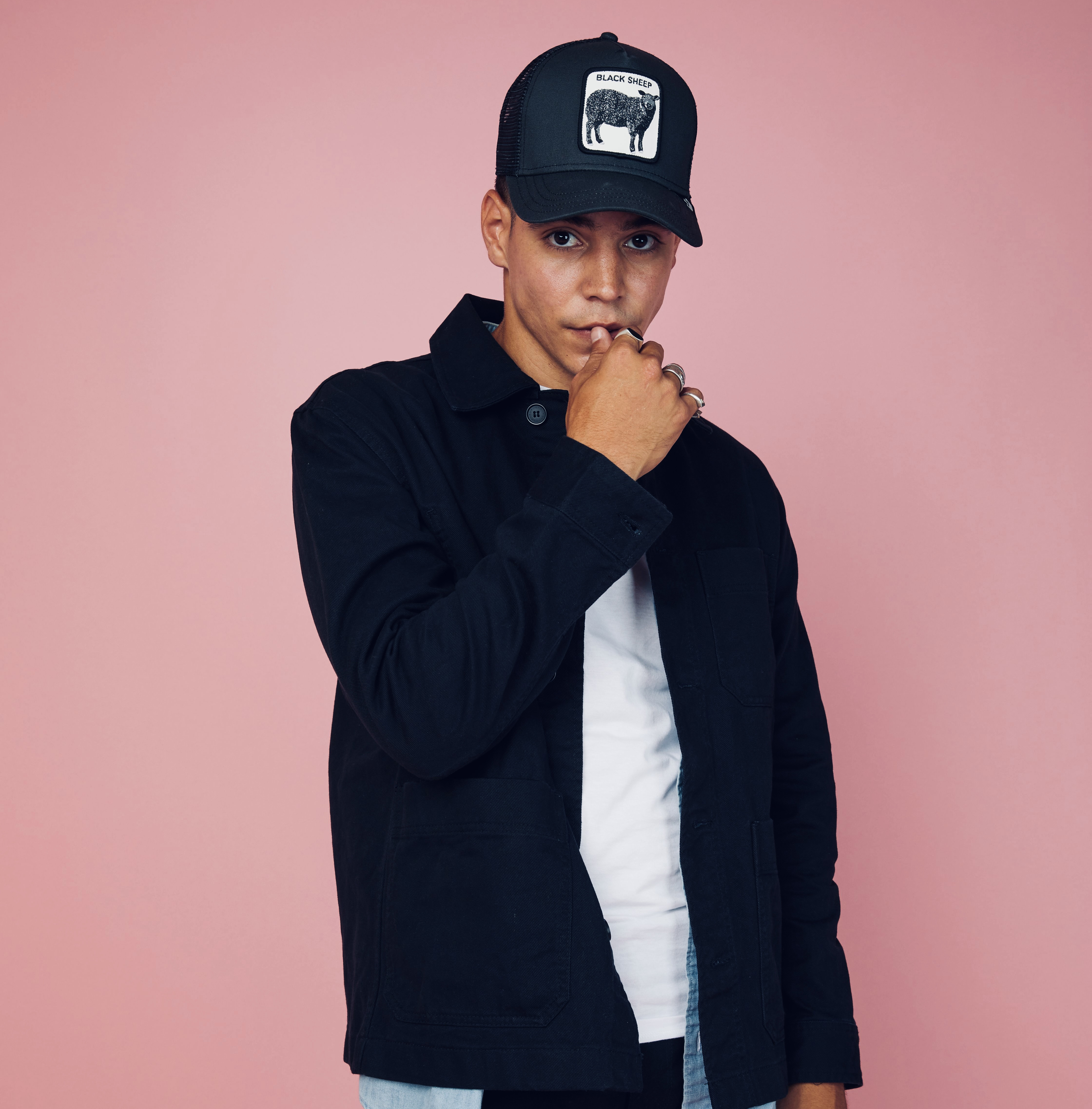

Aaron Dominguez has had a lot on his plate recently, but at the forefront of his work has been Hulu’s Only Murders in the Building, a comedy series following three strangers who all share a passion for true crime when they’re suddenly caught in the middle of brutal death located in the Manhattan building they all live in. Comedy, investigation and thrills ensue.
Dominguez plays the role of Oscar, a character who is a recently un-incarcerated, former friend of fellow characters Mabel (played by Selena Gomez) and Tim (played by Julian Cihi).
Dominguez took a moment to sit down with GRAZIA and answer some questions about the dichotomy of true crime and comedy, representing incarcerated communities, improving upon his improv skills and how we works to prepare for a role such as Oscar.
GRAZIA: I wanted to start off with a question about your process preparing for playing Oscar in Only Murders in the Building that combines a macabre and serious genre like true crime with something more light-hearted like comedy and if there were any challenges involved with that?
AD: Starting from the audition process, to prepare for what was something true crime yet something lighter with a comedic element to it, I thought was going to be a bit of a challenge and it was. Many times, especially for me, comedy is something that’s always scared me a little bit, because it can be very technical, and if we’re going to be honest it’s pretty hard to make someone laugh, especially with those two things mixing.
I got a coach to prep a few weeks before the show by a coach named Sara Mornell, and she helped me to come up with some new ideas and new takes as to how to work for TV, because TV is quicker, you have to land the punchlines, land the jokes, whereas a movie is a little more like a marathon.
But as far as the true crime stuff goes, I’ve never really been much of a true crime fan myself, just because I’m kind of a wimp in the sense that the real true crime stuff gets to me and I get paranoid on the street. So for the show, I just remember telling myself, “In order for the joke to land, I have to be completely present,” that way I can be in the moment.
GRAZIA: What was working on this project like compared to others that you’ve made appearances in?
AD: Yeah! It was pretty cool because every time I came to work I knew that very time I came to work, we were going to have fun, and everything was going to be a new take and a new spin on things. But at the same time you have to be ready to stand toe-to-toe in these scenes with these great names. It’s a comedy, so you know these people are coming ready with their choices and ready to improv 73 different times, and it was definitely something different than what I’ve worked on talent-wise.
Once again, this is pretty much my first comedic role, where I had to explore and expand upon a character. Not only for a scene but for the entirety of a series.
GRAZIA: Was improv the cornerstone method of acting in this show? Or was it more scripted?
AD: There’s this idea surrounding comedy, in the industry and amongst actors that in order to be a good comedic actor, you have to be good at improv. But there’s weird parallels, the writing was very good on the show, so we knew the text and knew the lines when we came to work, but there were times when they would try and give a different spin to the scene or try new bits off-camera. There were times when we would try new bits and the guys behind the camera would be breaking.
I was usually the actor on-screen who was breaking because I just couldn’t keep it together.
GRAZIA: Since the character you play, Oscar, is an un-incarcerated person, did you feel a certain responsibility to portray that community properly as they don’t usually get a lot of air-time on a mainstream platform?
AD: It was definitely something that crossed my mind, there was a few times where, in a scene, I feel like the context was maybe giving justice or it wasn’t, so I would have conversations about it to tweak things.
Within the storyline, there’s a period of ten years where [Oscar] goes away to prison for something ultimately he didn’t do. There were times within the storyline where I had to express frustration with what I went through, and within Oscar’s dynamic there’s this very noble sensibility and he has a good heart, he wants to move past the trauma and the pain that was. He wants to just move forward.
There was definitely kind of that tug-and-pull of “what would this actually feel like” if this were my reality. While in the context of shooting a 30-minute show, where a lot of information has to be given, a lot of things have to be cut, hopefully I did it some justice.













